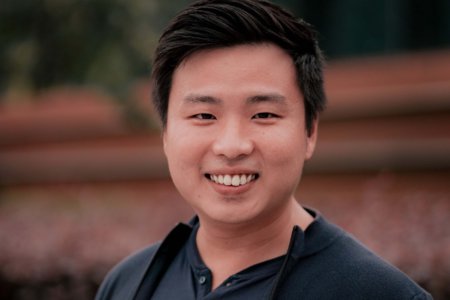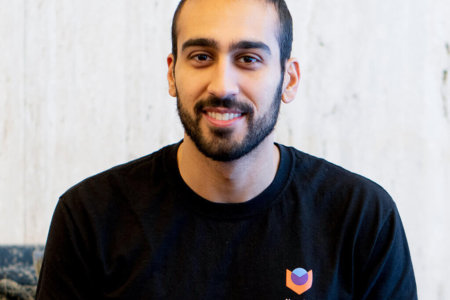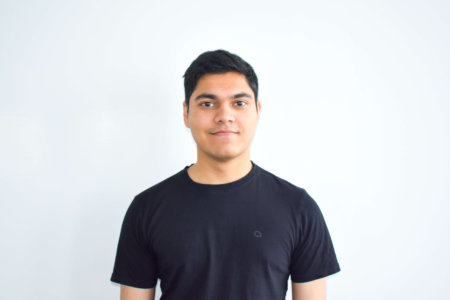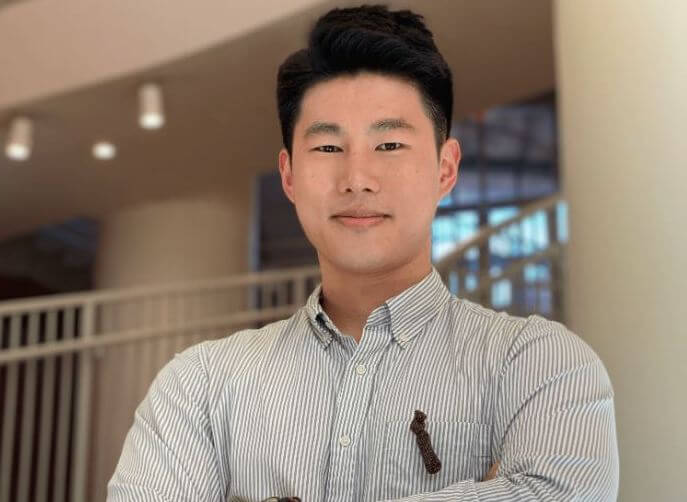
The human brain has some 100 billion neurons. A single neuron can relay instructions to other neurons through spaces between them called synapses. How many synapses are in between a neuron in the brain? More than 100 trillion, all ready to communicate to get the brain to recognise patterns, remember things and carry out other tasks.
Chanyeol Choi, a PhD candidate and Fulbright Scholar at the Massachusetts Institute of Technology (MIT), is developing large-scale devices that mimic the human brain. Naturally, the South Korean from Busan is an expert on all things relating to neurons and synapses. His future plans include using this design hardware so they can be incorporated into the human body and using his work with AI to diagnose diseases before symptoms appear.
As an engineer at MIT, Choi is part of the team that designed an artificial synapse to a tee so that it’s possible to control the strength of an electric current flowing across it — copying the way ions flow between neurons. They are breaking new grounds in research and inching closer towards building neuromorphic chips to help with pattern recognition and other tasks.
Below we talk to this Fulbright Scholar about his life abroad in the US, and how it is paving the way for him as a research engineer to improve human health. His work and achievements have earned him a coveted spot on the Forbes 30 under 30 2021 list.
What made you choose to study abroad in the US?
I found myself enjoying challenges and meeting people from different backgrounds. Studying abroad is the best way to do both at the same time. When I first came to the US as an exchange student at UCLA, my English was very basic; I felt quite isolated being on the other side of the planet from Busan in South Korea.
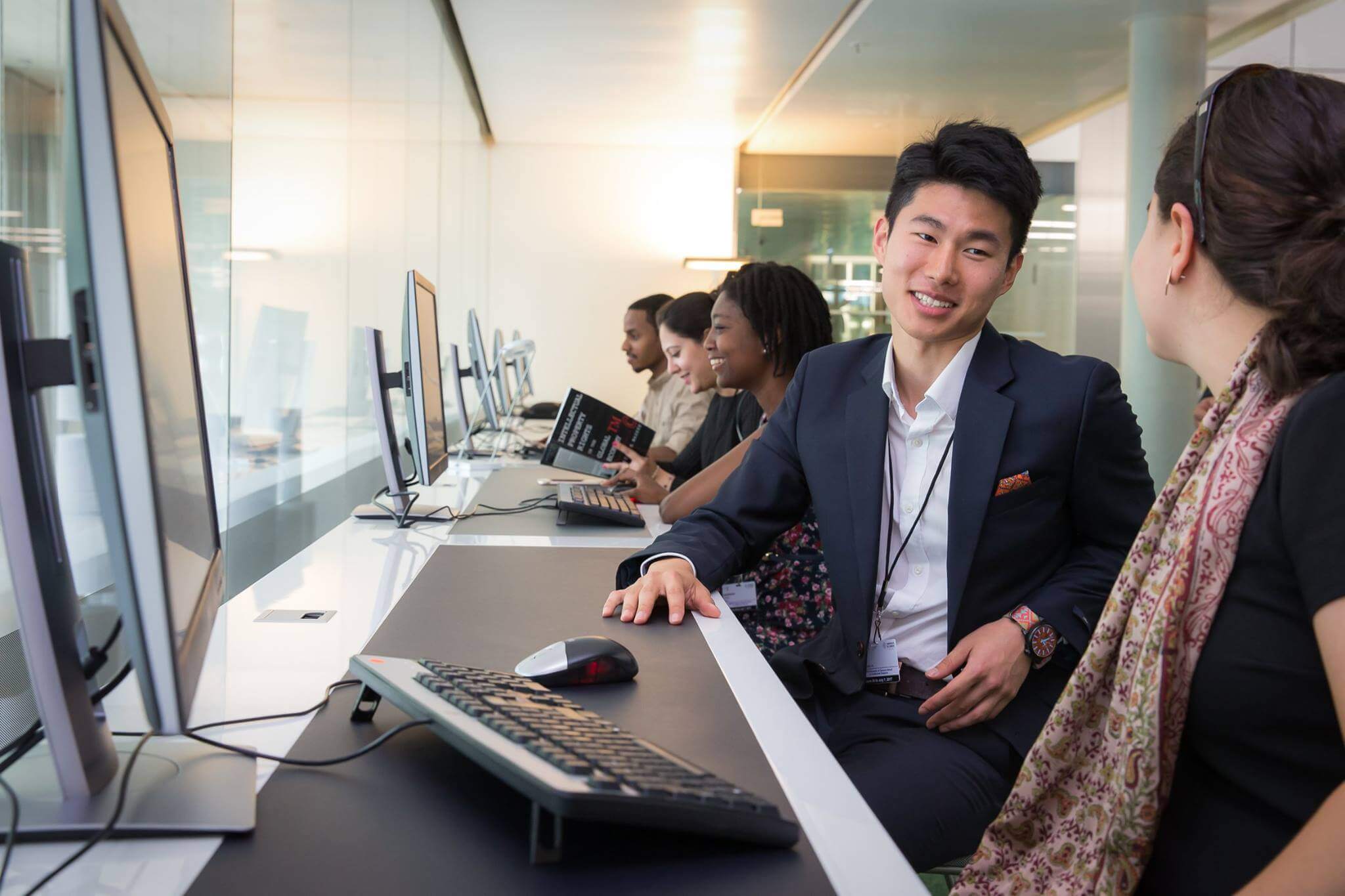
An image of Choi from the WIPO conference. Source: WIPO
However, I connected with people by joining an honours society (Eta Kappa Nu), a photography social club and by volunteering as a teaching mentor. Fortunately, I made amazing friends through these activities and they helped me be part of the University of California Los Angeles (UCLA) community. These wonderful experiences and supportive friendships motivated me to study abroad again for an advanced degree.
Do you think you would have been able to research as much as you have now if you had studied at a local institution?
If I had stayed in South Korea, I would still have been able to research and develop my area of interest, although, the research topic might have been different. Through my exchange programme at UCLA and my visiting programme at MIT, I was exposed to an emerging research topic — neuromorphic computing — which is what I’m working on at the moment. By experiencing many fields of research in the US, I cemented my passion for research.
What do you like most about the US?
I value working in a collaborative research environment and the US is the best place for that. I also love that new ideas are always encouraged and that there is plenty of funding to explore these emerging fields.

A neuromorphic alloy chip made at MIT paving the way to change the future in computing. Source: Chanyeol Choi
What has been your most memorable class as a Fulbright Scholar thus far?
Last year I took a course called “Materials Physics for Neural Interfaces” taught by Professor Polina Anikeeva at MIT Department of Materials Science and Engineering which was most memorable for me. The course was designed to cover ways of recording stimulating neurons optically and electrically.
This differs from conventional non-invasive methods such as MRI, PET, EEG and ECoG, which are known to have large temporal or spatial resolutions. This course taught a unique invasive methodology to monitor a signal of a few micrometer-sized neuron on a millisecond timescale.
The field requires interdisciplinary knowledge from biology, materials science, circuit design, optics, and computer science. Although these advanced technologies such as electrophysiology and optogenetics face some challenges, I believe that understanding neuronal behaviour is the first step towards building versatile medical devices that can treat many diseases.
What do you plan to do with your PhD after graduating? Tell us about your vision in helping the medical industry identify problems before symptoms appear using AI technology.
For medical applications, I am deeply interested in developing AI-powered medical imaging software, as well as nanodevices for skin-electronics or optogenetics. I envision that AI will empower healthcare providers with new capabilities to acquire and interpret medical images.
This will be through ultrasounds, CT scans and MRIs with high accuracy and fast processing. In turn, this will support over 40 million global healthcare practitioners to accelerate diagnosis and democratise healthcare services for underserved populations.
I would also like to continue developing neuromorphic devices and systems, as well as nanodevices that interact with the human body. With neuromorphic devices as the next generation AI hardware, we will be able to accelerate AI operations in terms of speed and energy. This will help reduce the tremendous carbon footprint of conventional AI hardware.
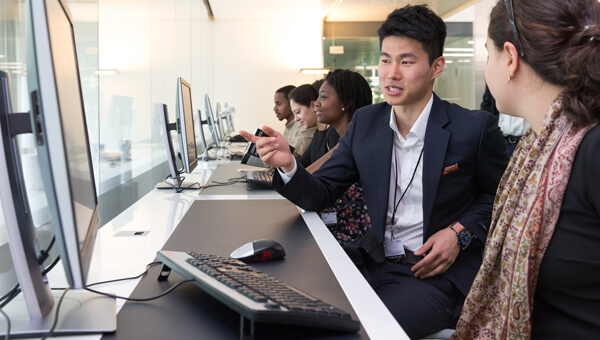
Choi wants to use his knowledge with AI to help diagnose diseases before symptoms appear. Source: WIPO
Do you have any passion projects at the moment?
I am working with an amazing team, Dr. Kanghyun Ryu, Dr. Ikbeom Jang, Subeen Pang, and Charlotte Reed, on an international AI challenge through the International Symposium on Biomedical Imaging (ISBI) and the University of Oxford to automate amniotic fluid detection in ultrasounds. Our algorithm won first place for its ability to identify amniotic fluid depth, an essential prenatal measurement to assess fetal health. We are excited by the implications for faster and more detailed medical scans through AI. One day, we hope exceptional healthcare will be accessible to everyone.
What advice do you have for international students looking to study abroad?
I would like to encourage you to study abroad if you have the opportunity. While the experience can be challenging at times due to language and culture shock, immersing yourself in a new world will help you grow.
It will also help you mature, build independence and learn about new perspectives. If you are reading this and feel hesitant about studying abroad, you can reach out to me any time.
What’s one thing from home you miss and how do you substitute it?
Definitely my family. Without their support, I would have never been able to chase my dream in the US. Their unconditional support and trust are irreplaceable, and I hope that one day I can help others who are away from their families to pursue their careers and support them as a mentor.








